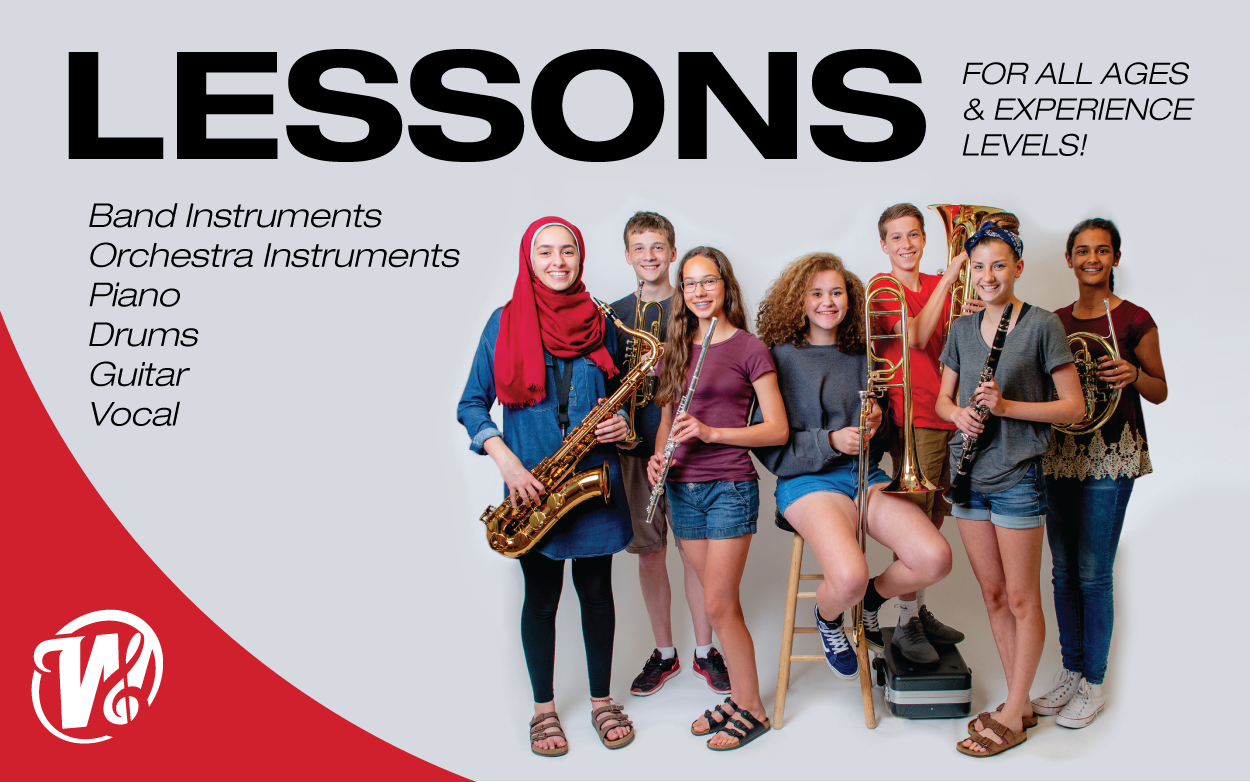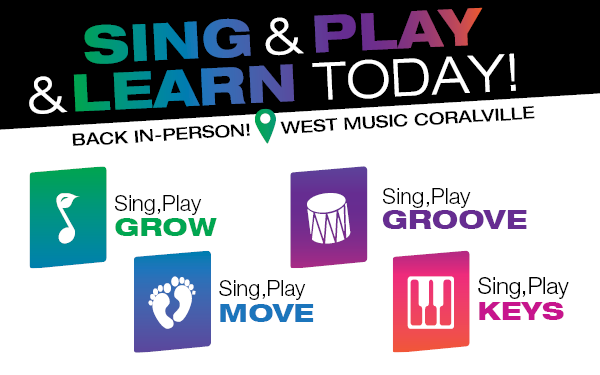Discover the Joy of Learning an Instrument as an Adult
Unlock your musical potential and embrace the joy of learning an instrument as an adult. Explore the benefits of adult music education and discover how it can enhance your life.
Why Learning an Instrument as an Adult Matters
Learning an instrument as an adult is a fulfilling and enriching experience that can bring immense joy and satisfaction. While many people associate music education with childhood and adolescence, it is never too late to pursue your musical passions. Whether you have always wanted to play an instrument or have recently developed an interest, learning as an adult offers unique advantages and opportunities.
One of the main reasons why learning an instrument as an adult matters is the sense of personal accomplishment it brings. As adults, we often have busy lives filled with responsibilities and obligations. Taking the time to learn and master an instrument allows us to prioritize our own growth and creativity. It is a reminder that it is never too late to pursue our dreams and passions, and that we are capable of continuous learning and improvement.
In addition to personal fulfillment, learning an instrument as an adult can also have a positive impact on our overall well-being. Music has been shown to reduce stress, improve cognitive function, and enhance our mood. Playing an instrument engages our brain in a unique way, stimulating both the analytical and creative parts of our mind. It can serve as a form of therapy and self-expression, allowing us to process emotions and experiences in a meaningful way.
Furthermore, learning an instrument as an adult provides opportunities for personal growth and social connection. Joining a music class or ensemble allows us to meet like-minded individuals who share our passion for music. It creates a sense of community and camaraderie, as we work together towards a common goal. Playing music with others also fosters collaboration, communication, and teamwork skills, which can be valuable in various aspects of life.
Overall, learning an instrument as an adult matters because it enables us to explore our creativity, enhance our well-being, and connect with others. It is never too late to embark on a musical journey and discover the joy that comes with playing an instrument. So, whether you have always dreamed of playing the piano, guitar, violin, or any other instrument, don't hesitate to start your adult music education and unlock your musical potential.
Overcoming the Challenges of Adult Music Education
While learning an instrument as an adult can be a rewarding experience, it is not without its challenges. However, with the right mindset and approach, these challenges can be overcome, allowing you to fully enjoy your music education journey.
One common challenge faced by adult learners is finding the time to practice. Adults often have busy schedules, juggling work, family, and other commitments. However, it is important to prioritize your music education and carve out dedicated practice time. Even setting aside a few minutes each day can make a significant difference in your progress. Consistency is key, and finding a practice routine that works for you is essential.
Another challenge is dealing with self-doubt and comparison to younger learners. It is natural to feel a sense of insecurity when starting something new as an adult, especially when surrounded by younger learners who may have been playing for years. However, it is important to remember that everyone progresses at their own pace, and comparison is not productive. Embrace your journey and focus on your own growth and improvement. Celebrate your achievements, no matter how small, and remember that learning an instrument is a lifelong process.
Additionally, adult learners may face physical challenges that younger learners may not encounter. Our bodies may not be as flexible or agile as they once were, which can affect our ability to play certain instruments. However, there are ways to adapt and overcome these challenges. Seek guidance from a qualified teacher who can provide techniques and exercises to help you overcome physical limitations. Remember to listen to your body and take breaks when needed to avoid strain or injury.
Finally, it is important to maintain a positive mindset and enjoy the process of learning. Learning an instrument should be a fun and fulfilling experience, so don't be too hard on yourself. Celebrate every milestone and enjoy the journey, embracing the challenges as opportunities for growth and improvement. With perseverance and dedication, you can overcome any obstacle and fully enjoy your adult music education.
The Benefits of Learning an Instrument as an Adult
Learning an instrument as an adult offers numerous benefits that can positively impact various aspects of your life. From cognitive development to emotional well-being, here are some of the key benefits of adult music education:
1. Cognitive Enhancement: Playing an instrument engages both hemispheres of the brain, stimulating memory, attention, and problem-solving skills. It can improve cognitive function and enhance overall brain health.
2. Stress Relief: Music has a calming effect on the mind and body. Playing an instrument can reduce stress, lower blood pressure, and promote relaxation. It serves as a form of therapy and a means of self-expression.
3. Emotional Expression: Music has the power to evoke and express emotions. Learning an instrument allows you to channel your emotions into your music, providing an outlet for self-expression and catharsis.
4. Improved Coordination: Playing an instrument requires coordination between your hands, fingers, and sometimes even your feet. Regular practice can enhance your fine motor skills and hand-eye coordination.
5. Time for Self-Care: Adult life can be demanding and stressful. Learning an instrument provides an opportunity to prioritize self-care and engage in a fulfilling and enjoyable activity.
6. Social Connection: Joining a music class or ensemble allows you to connect with like-minded individuals who share your passion for music. It creates a sense of community and provides opportunities for collaboration and teamwork.
7. Personal Achievement: Learning an instrument as an adult is a testament to your dedication and perseverance. It is an accomplishment that can boost your self-confidence and sense of personal achievement.
These are just a few of the many benefits of learning an instrument as an adult. Whether you are looking to enhance your cognitive abilities, manage stress, express your emotions, or simply enjoy the beauty of music, adult music education can enrich your life in countless ways.
Choosing the Right Instrument for You
When embarking on your adult music education journey, choosing the right instrument is an important decision. Here are some factors to consider when selecting an instrument:
1. Personal Preference: Choose an instrument that resonates with you and sparks your interest. Consider the sound, style, and genres of music you enjoy listening to.
2. Physical Considerations: Take into account your physical abilities and limitations. Some instruments require more physical dexterity or lung capacity than others. Choose an instrument that suits your comfort and physical capabilities.
3. Accessibility and Resources: Consider the availability of teachers, classes, and resources for your chosen instrument in your area. Accessibility to learning materials and support can greatly impact your learning experience.
4. Budget: Determine your budget for purchasing or renting an instrument. Some instruments can be quite expensive, so consider your financial resources before making a decision.
5. Long-Term Commitment: Learning an instrument requires time, effort, and dedication. Consider the level of commitment you are willing to make and choose an instrument that aligns with your long-term goals and interests.
Remember, the most important factor in choosing an instrument is your passion and enthusiasm. Follow your musical instincts and select an instrument that brings you joy and fulfillment. It's never too late to discover your musical talents and embark on a lifelong musical journey.
Tips for Getting Started with Adult Music Education
Ready to begin your adult music education journey? Here are some tips to help you get started:
1. Set Clear Goals: Define what you hope to achieve with your music education. Whether it's learning a specific song, mastering a technique, or performing in front of others, having clear goals will keep you motivated and focused.
2. Find a Qualified Teacher: Seek guidance from a qualified music teacher who specializes in adult education. They can provide you with proper instruction, feedback, and guidance tailored to your individual needs and goals.
3. Establish a Practice Routine: Consistency is key when learning an instrument. Set aside dedicated practice time each day or week, and stick to your schedule. Even short practice sessions can yield significant results over time.
4. Be Patient and Persistent: Learning an instrument takes time and effort. Be patient with yourself and embrace the learning process. Celebrate small victories along the way and don't get discouraged by temporary setbacks.
5. Explore Different Learning Resources: In addition to formal lessons, explore online tutorials, books, and resources that can supplement your learning. Experiment with different learning methods and find what works best for you.
6. Join a Music Community: Connect with other adult learners and musicians by joining a music community or ensemble. It provides opportunities for collaboration, feedback, and motivation. You can learn from each other and share your musical journey.
7. Enjoy the Journey: Remember to have fun and enjoy the process of learning. Music is meant to be enjoyed, so embrace the joy and beauty that comes with playing an instrument. Celebrate your progress and let the music bring you happiness and fulfillment.
With these tips in mind, you are ready to embark on your adult music education journey. Embrace the challenges, celebrate the achievements, and let the music guide you towards a fulfilling and rewarding musical experience.


